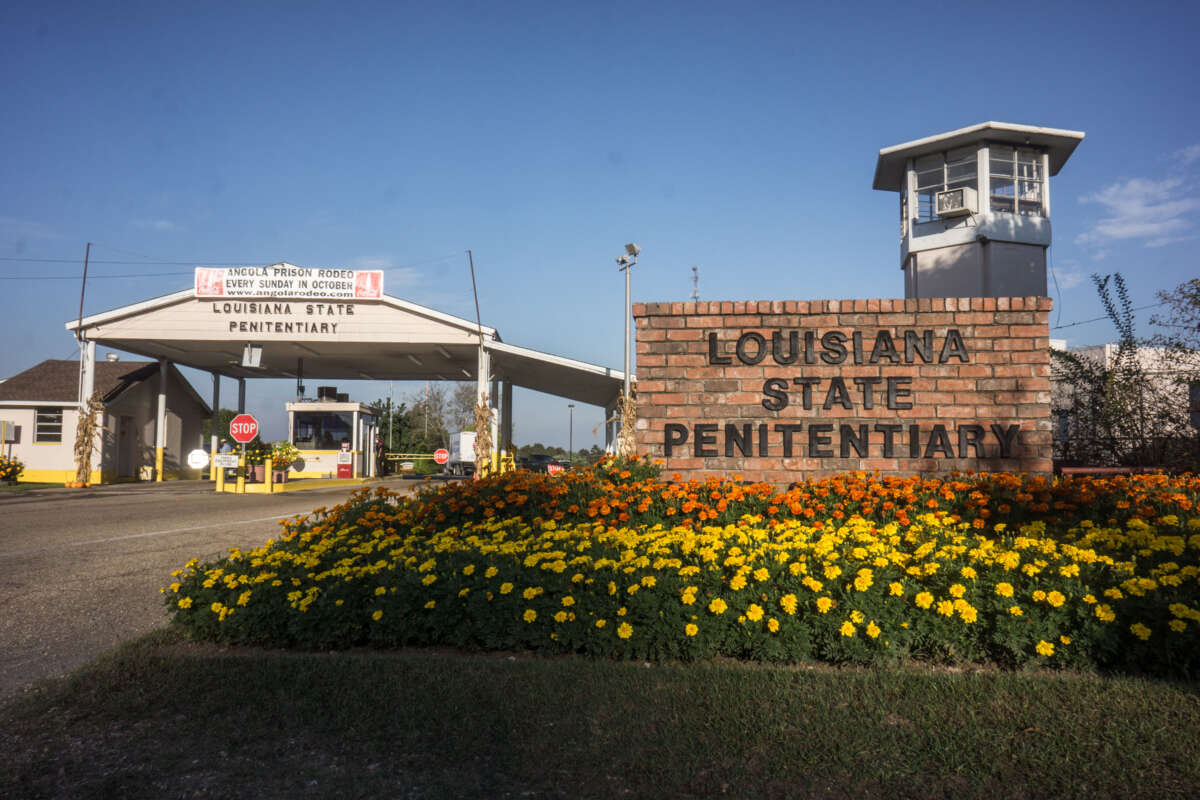Children incarcerated at Louisiana State Penitentiary at Angola prison have been locked in windowless cells for nearly 24 hours a day without air conditioning as heat indexes in the area reach up to 133 degrees.
The youth, almost all of whom are Black, are being detained in the former death row building of the nation’s largest adult maximum security prison, according to the American Civil Liberties Union (ACLU) of Louisiana. One child also described being maced and thrown against the wall by staff in court filings.
In an emergency filing submitted to the U.S. District Court for the Middle District of Louisiana on Monday, the ACLU and other legal groups asked the court to move the kids out of the unit immediately and cease transfers of children to adult carceral institutions.
“As predicted, the state’s unprecedented decision to hold children in abusive conditions inside Angola’s former death row building has resulted in almost a year of devastating effects,” Nora Ahmed, legal director of the ACLU of Louisiana, said in a statement. “The state must take immediate action to remove kids from Angola and end the practice of holding children in adult facilities.”
In September 2022, Office of Juvenile Justice (OJJ) officials claimed that the Angola unit was only temporary, and that the project would end by spring 2023. Last year, Louisiana Gov. John Bel Edwards (D) announced the supposedly temporary move of 25 teenagers from the Bridge City Center for Youth to Angola. Since October 2022, however, the state estimates that 70-80 children were sent to Angola for 4-8 weeks, with some youth being placed there multiple times. Children as young as 14 have been transferred to the unit.
“The state’s treatment of kids in Angola has been a series of broken promises,” David Utter, lead counsel and executive director of the Fair Fight Initiative, said in a statement. “The state promised the Angola facility would close in the spring. The state promised the kids wouldn’t be held in solitary. The state promised the kids would receive their education and treatment. None of this has come to pass.”
Unlike the Louisiana Department of Public Safety and Corrections, OJJ is mandated to provide rehabilitative care. However, Susan Meyers, senior staff attorney of the Southern Poverty Law Center, contends that the children have not received the required rehabilitation, education and health care treatment.
“Despite OJJ’s stated policy of rehabilitation over punishment, the state continues to hold youth in oppressive conditions that can only be characterized as punitive,” Meyers said in a statement.
Abolition advocates have flagged that media coverage of the situation overlooked that conditions at Bridge City Center, where the youth were previously being held, were so horrible that the incarcerated youth led an uprising that resulted in the center being decommissioned. In 2022, 20 children attempted to take control of the Bridge City Center and five incarcerated youth escaped. Up to 50 SWAT officers and deputies from four patrol districts were sent in to regain control of the facility.
“Yes, these youth are victims of an inhumane [and] brutal prison industrial complex but they are also valiant rebels who fought for their own humanity and won, only to be punished in the most inhuman ways. They are being punished for their attempts to be free,” the Atlanta Solidarity Fund stated on Twitter.
Although Gov. Edwards acknowledged that the poor conditions of the center possibly led to the uprising, the governor overruled objections to transferring the children to Angola and revealed that the uprising directly prompted his policy decision to hold youth at the prison.
“The Democratic Governor of LA approved the transfer of children from juvenile detention centers to Angola, arguably the most notorious prison in the south,” said Deva Woodly, a political science professor at Brown University. “The barbarism of carceral logic truly knows no boundaries.”
